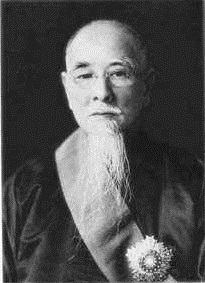Lin Sen
| Lin Sen | |
|---|---|
| 林森 | |
 |
|
| Chairman of the National Government of China | |
|
In office 15 December 1931 - 1 August 1943 |
|
| Premier |
Chen Mingshu Sun Fo Wang Jingwei Chiang Kai-shek H. H. Kung |
| Preceded by | Chiang Kai-shek |
| Succeeded by | Chiang Kai-shek |
| President of the Legislative Yuan | |
|
In office 2 March 1931 - 28 December 1931 |
|
| Preceded by | Hu Hanmin |
| Succeeded by | Chang Ji |
| Personal details | |
| Born |
March 16, 1868 Shangan Township, Minhou County, Fujian, Qing Dynasty |
| Died | August 1, 1943 (aged 75) Chongqing, Republic of China |
| Nationality |
|
| Political party |
|
Lin Sen (Chinese: 林森; pinyin: Lín Sēn; March 16, 1868 – August 1, 1943), courtesy name Zichao (子超), sobriquet Changren (長仁), was Chairman of the National Government of the Republic of China from 1931 until his death.
Born to a middle-class family in Shangan Township (尚幹鄉), Minhou County (閩侯縣), Fujian, Lin was educated by American missionaries. He later worked in the Telegram Bureau of Taipei, Taiwan in 1884. After the First Sino-Japanese War, he engaged in guerrilla activities against the Japanese occupiers. He returned to the mainland and worked in the Shanghai customs office in 1902. He later lived in Hawaii and San Francisco.
There he was recruited by the Tongmenghui in 1905, and was an overseas organizer for the Kuomintang. During the Xinhai Revolution, he was in charge of the Jiangxi revolt. He became speaker of the senate in the National Assembly. After the failed Second Revolution against President Yuan Shikai, Lin fled with Sun Yat-sen to Japan and joined his Chinese Revolutionary Party. He was sent to the United States to raise funds from the party's local branches. In 1917, he followed Sun to Guangzhou where he continued to lead its "extraordinary session" during the Constitutional Protection Movement. When the assembly defected to the Beiyang government, he remained with Sun and later served as governor of Fujian.
...
Wikipedia
